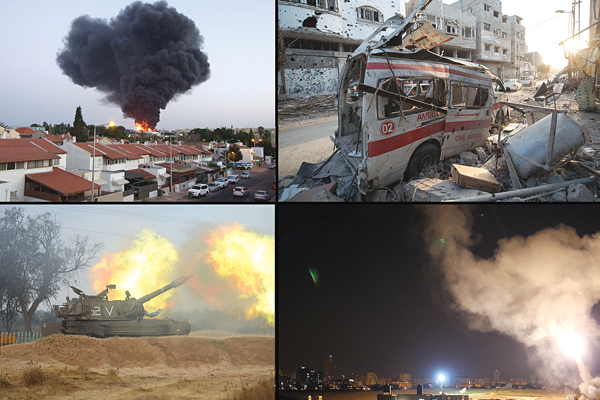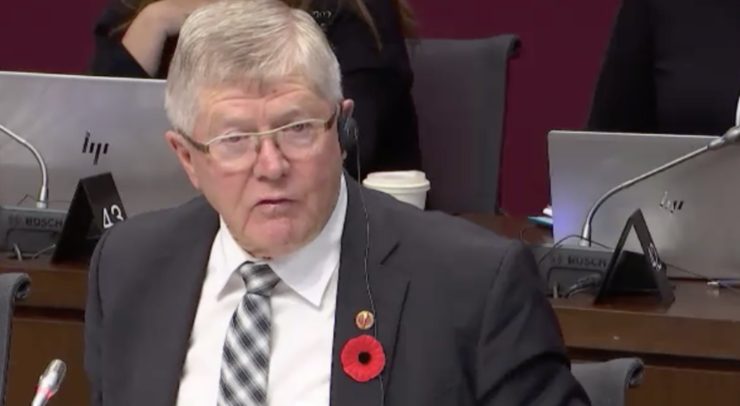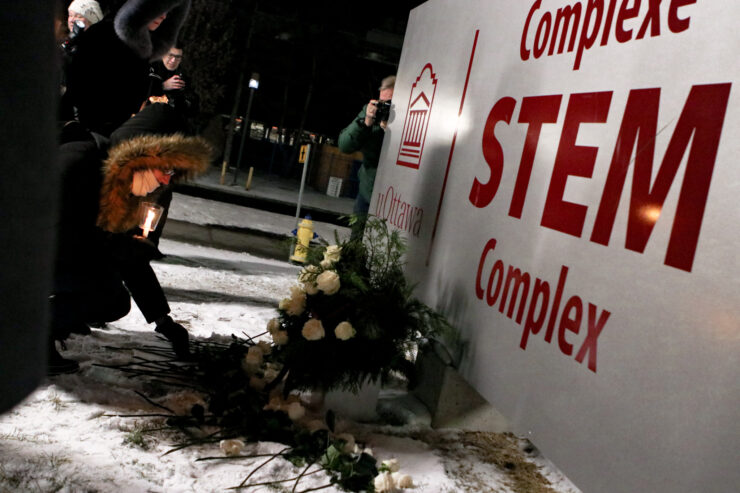U of O students hold candlelight vigil for Gaza victims
Andrew Ikeman and Jesse Mellott | Fulcrum Staff
On Nov. 21, students at the University of Ottawa took part in a candlelight vigil, held on the steps of the university centre overlooking the Morisset Terrace. The vigil featured many speakers who discussed the violence that has taken place in Gaza in the past few weeks.
Dylan Penner, a founding member of Independent Jewish Voices (IJV), an organization that supports Palestinian human rights claims, spoke at the event and condemned the actions taken by Israel. Penner went on to express his solidarity for those in Gaza and acknowledged that while a ceasefire has happened, the blockade in Gaza still exists.
“There are a growing number of us [Jewish people] from coast to coast against those who claim to represent the Jewish community,” said Penner. “Illegal settlements continue, Israel impunity continues. Until those things end, and until [Israeli Prime Minister Benjamin] Netanyahu and all his friends who have been complicit in what has happened are [tried at the International Criminal Court] in The Hague, then our work must continue.”
The mood of the event was sombre, and Eyad Abotteen, a second-year chemistry and English student who is also a Palestinian from the West Bank, said the vigil conjured up mixed emotions.
“[This event brings] emotions of sadness toward the people killed, [and] feelings of anger toward the other side,” said Abotteen.
The vigil was organized by three U of O political-science students: Sabrien Amrov, Omar Sabry, and Carmya Sa’a, who, according to Amrov, wanted to bring the discussion of what is happening in Gaza to the campus.
“We came together because we just felt that we weren’t talking about it on campus,” said Amrov. “It was such a big deal in the news, what was happening in Gaza, but we didn’t feel—either in our classrooms, or even amongst friends in our classrooms, or even in school media—we felt we weren’t talking about it, and we felt that it was something we wanted to bring to the table.”
Emile Scheffel, a spokesperson for the Israel Awareness Committee (IAC), said they did receive an invitation to the vigil. Scheffel said that the IAC chose to commemorate the dead in a different way.
“We are all for commemorating the innocents who died on both sides of the conflict,” said Scheffel. “We did have a moment of silence for them at the event that we had the same night.”
Scheffel said he thought the vigil was more of a rally being directed rhetorically against the state of Israel, which is why he and other members of the IAC chose not to attend.
“The vigil laid the entire blame on the state of Israel, which is problematic given that the war started with Hamas and other terrorist groups firing rockets in Gaza at Israeli civilian populations,” said Scheffel. “[The vigil] was using really politically charged, really anti-Israeli language in the promotion of it, so that is why we felt it is something we shouldn’t be a part of.”
The vigil ended with a reading of a list of the Palestinians who died during the eight days of fighting in Gaza, after which candles were arranged to spell out the words “Free Gaza.”





